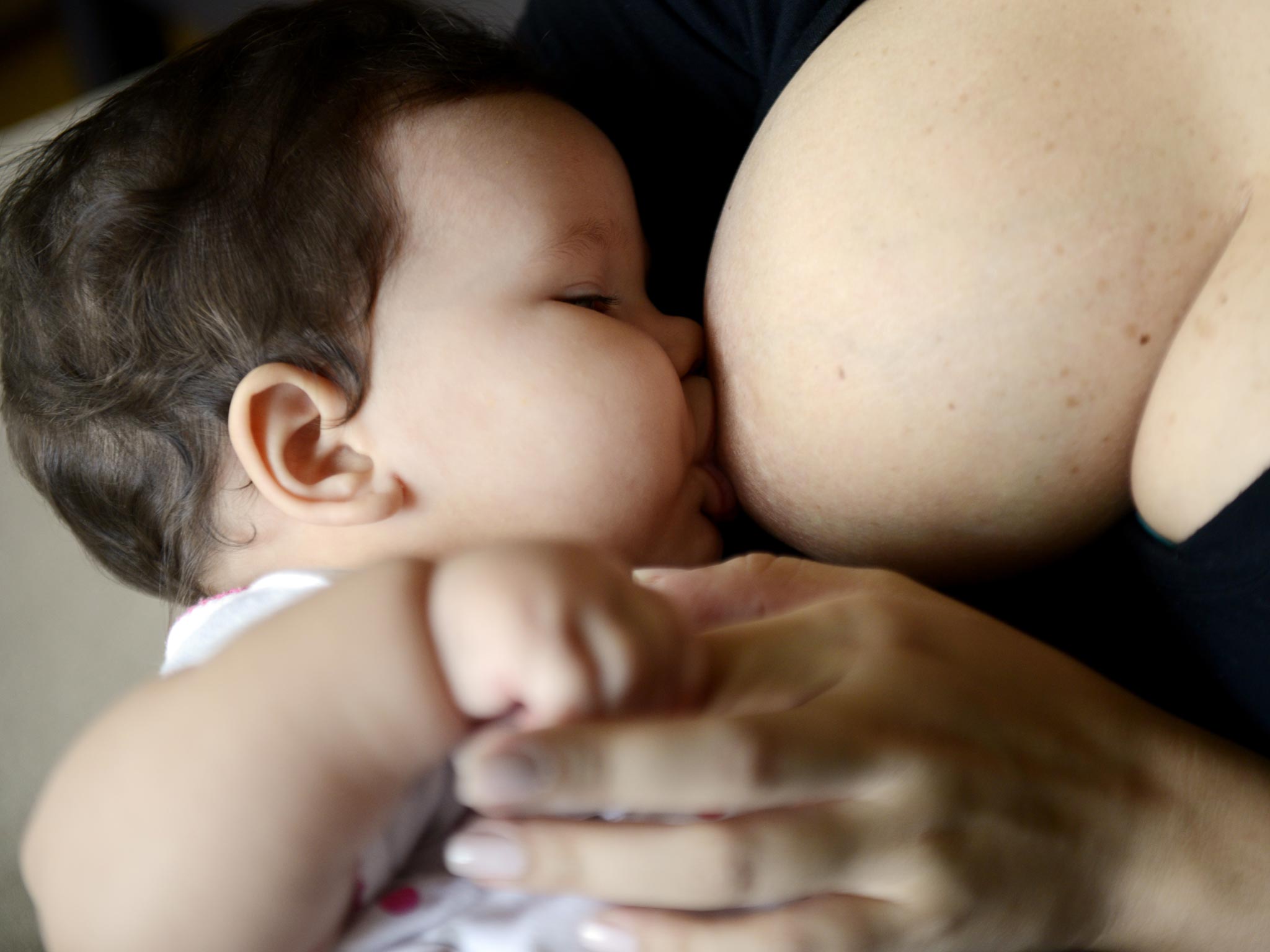Shaming women for being unable to breastfeed is wrong, and it needs to stop
Mums are now more likely to be abused in public for bottle-feeding than breastfeeding - and the pressure is doing serious damage

When it comes to feeding babies, we all know 'breast is best', but British mums are bottling it. While over 80 per cent of UK mothers try to breastfeed after birth, only a tiny one in 100 manage the recommended full six months - giving us one of the worst breastfeeding rates in the whole world.
Academics, midwives and medics have all struggled to understand why this is, as the millions of Government pounds pumped into boosting breastfeeding don’t seem to be making a drop of difference.
But new research revealed this week may have uncovered the cause. Health professionals are seeing the rise of a disturbing new phenomenon where new mums are under such intense pressure to perform that they simply cannot breastfeed.
Dubbed ‘bressure’ - meaning breastfeeding pressure - it seems to be a direct result of the ‘breast is best’ campaign dictating what mothers should do rather than supporting them. The study showed 55 per cent of mums - whether they breast or bottle feed - have felt ‘bressure’ and believe the campaign has placed too big a burden of expectation placed on mothers to breastfeed.
In my job at Channel Mum I speak with dozens of new mums every day and some of their tales are heartrending. I’ve heard of mums made to feel they’ve failed and of mums plunged into mental illness - and even mums shunned by other mothers or banned from mother and baby groups as they can’t nurse naturally.
Recent comments to me have included: “I felt guilty and a failure that my body wouldn’t do what was seen as natural”, “I felt so ashamed I couldn’t do it” and “I felt like a terrible mum and I didn't deserve to be a mother, even though I had no choice. Post natal depression followed”.
And the negativity placed on new mums doesn’t stop when they fail to breastfeed, but gets worse. Astonishingly, mums are now more likely to be abused in public for bottle-feeding than breastfeeding, with 41 per cent of bottle-feeding mums made to feel they have ‘failed as a mum and failed their child’.
This is wrong and it needs to stop - now. We need a lot more mothering and a lot less judging.
There are a myriad of reasons why some mothers can’t breastfeed. Some may be ill after the birth, or their baby maybe so premature their milk has not come in. Their child could have a problem such as tongue tie or they may have a medical condition themselves They may even find it so painful that the struggle to feed leaves their baby dehydrated.
I’ve breastfed three children myself and I know nurturing and nourishing your newborn baby is the most primeval, guttural, basic instinct you’ll ever feel. Knowing that breast-is-best and then being unable to provide this nourishment hits hard at core of what it means to be a mum, so there is nothing to gain by making these loving women at the very beginning of motherhood feel they have failed at being female.
Instead we should support those who want to keep trying with gentle support and care to breastfeed - while accepting babies can also survive and thrive on the bottle.
Yes, breast maybe best but mums are fed up with their feeding choices being criticised. Let’s see some milk of human kindness to change this fast.
Channel Mum Founder, Siobhan Freegard, previously founded the UK’s biggest parenting website, Netmums. Siobhan has written several parenting books and was awarded an OBE in the 2013 New Years Honours List for services to families.

Join our commenting forum
Join thought-provoking conversations, follow other Independent readers and see their replies